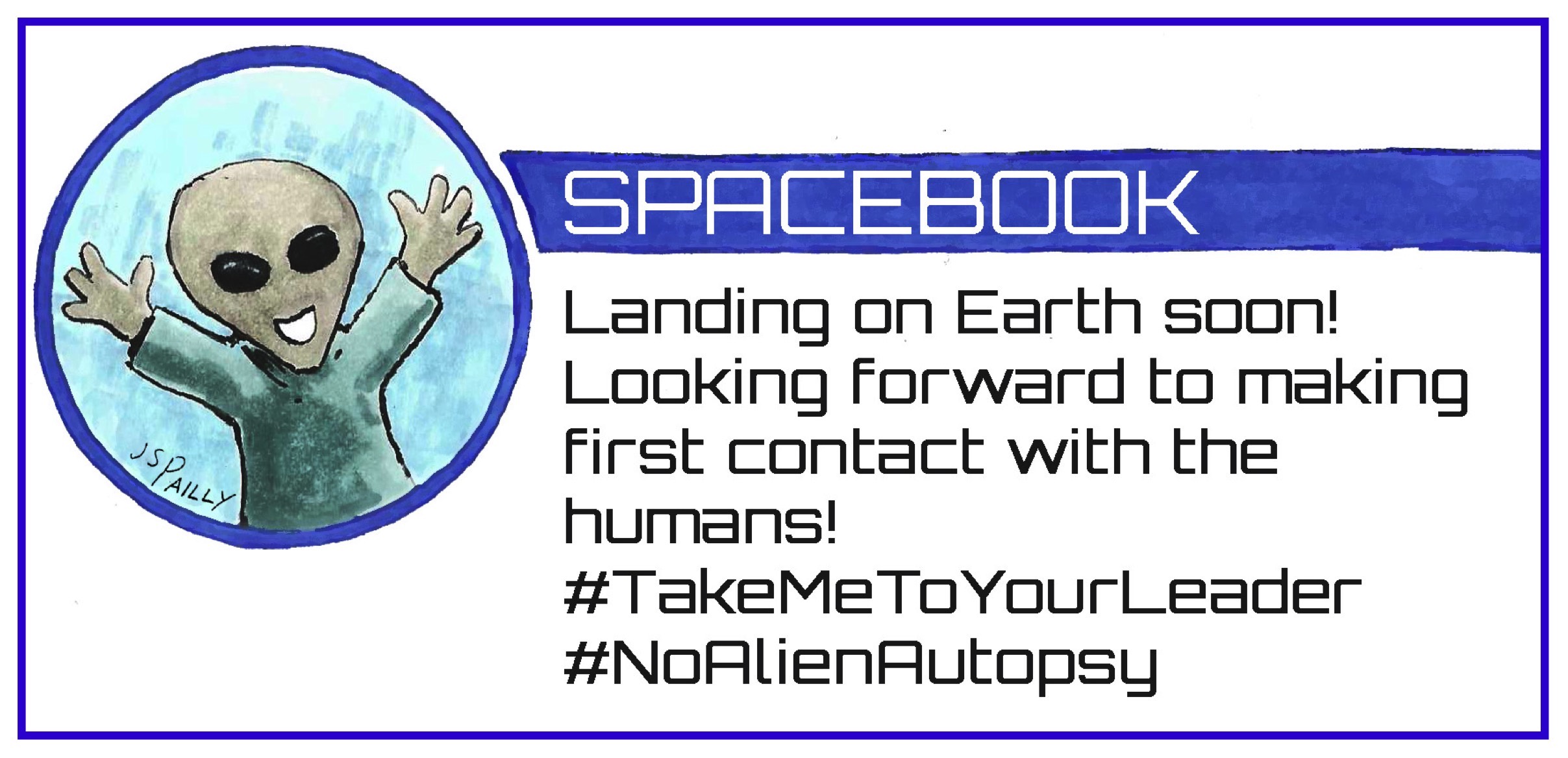Sciency Words: (proper noun) a special series here on Planet Pailly focusing on the definitions and etymologies of science or science-related terms. Today’s Sciency Word is:
THE RIO SCALE
The Rio Scale is a classification system used by SETI scientists. Let’s say someone’s detected possible evidence of an alien intelligence. How significant is this discovery? How seriously should we take that news? The Rio Scale is a tool to help answer those questions.
The Rio Scale was created in the year 2000 at the International Astronomical Congress, which was held that year in Rio de Janerio. Mathematically speaking, the Rio Scale is expressed as:
(Q1 + Q2 + Q3) * ∂
You have to look through a chart in order to plug numbers into those variables. I’m not going to reproduce that whole chart here, but if you’re interested here’s a Rio Scale calculator where you can learn more.
The quick version is that Q1 is the “what” of what we’ve discovered. Q2 represents how we discovered it, and Q3 represents how far away from Earth it is. So as an example, let’s say aliens are transmitting a message straight at Earth. Let’s say the message was detected by a radio telescope and confirmed by subsequent SETI observations. And let’s say the message is coming from Proxima Centauri, the star nearest to our own Sun. This scenario would score very well on the Rio Scale.
As another example, let’s say we find some anomalous infrared radiation, the possible heat signature of an alien megastructure. Let’s say this was found in archival data from the 1970’s. And let’s say this anomalous radiation came from the Triangulum Galaxy. This scenario would score rather poorly on the Rio Scale.
Lastly, before I forget, let’s talk about ∂. That variable is a credibility factor. If information about a possible extraterrestrial signal is presented in a peer-reviewed scientific journal, ∂ will be a fairly high number. If it’s just a press release, ∂ will be lower. And if the information is coming from some weirdo on the Internet, ∂ equals zero.

Given the chance, I’m sure SETI scientists would like to follow up on every possible detection of extraterrestrial intelligence. But SETI research does not have infinite resources.
In my opinion, the Rio Scale doesn’t sound like the most scientifically objective system; however, I imagine it does help when comparing and contrasting different possible discoveries. That way, given the limited resources available to them, SETI scientists can better judge which detections are worth further investigation and which can probably be ignored.
” And let’s say the message is coming from Proxima Centauri, the star nearest to our own Sun. This scenario would score very well on the Rio Scale.”
I think it would also classify as scary, since aliens that close might be able to physically affect us in our lifetimes. Aliens in the Triangulum galaxy, not so much.
LikeLiked by 2 people
I guess that would also depend on the content of the message …
LikeLiked by 2 people
If you check out the Rio Scale calculator, you’ll see an even scarier scenario: messages coming from spacecraft that have already entered the Solar System.
LikeLiked by 2 people
We’d have to hope we’re not monkeys watching the approach of the construction crew intent on converting our habitat into a strip mining operation.
LikeLiked by 2 people
From the Hitchhiker’s Guide: “All the planning charts and demolition orders have been on display in your local planning department in Alpha Centauri for fifty of your Earth years, so you’ve had plenty of time to lodge any formal complaint and it’s far too late to start making a fuss about it now.”
LikeLiked by 2 people
At least the Vogons regarded us as someone who had the right to complain (even if we waited too long to avail ourselves of it). The Centauri might be like: let’s clear out all this pesky vermin so we can work without being bothered. (Like V’Ger deciding the “carbon based units” infestation needed to be cleared out.)
LikeLiked by 2 people
*creates spacebook account
LikeLiked by 2 people
*sends spacebook friend request
LikeLike
Do you know of any examples of high Rio events?
LikeLiked by 1 person
I probably should have looked into that as part of my research for this post. I just found this paper which would have added a lot to this topic: https://www.cambridge.org/core/journals/international-journal-of-astrobiology/article/rio-20-revising-the-rio-scale-for-seti-detections/DF9D6EABEA7D8D84999234BCFB3FADB4/core-reader
Apparently even the Wow! Signal scores less than a 1 out of 10 on the Rio Scale, according to that paper.
LikeLiked by 1 person